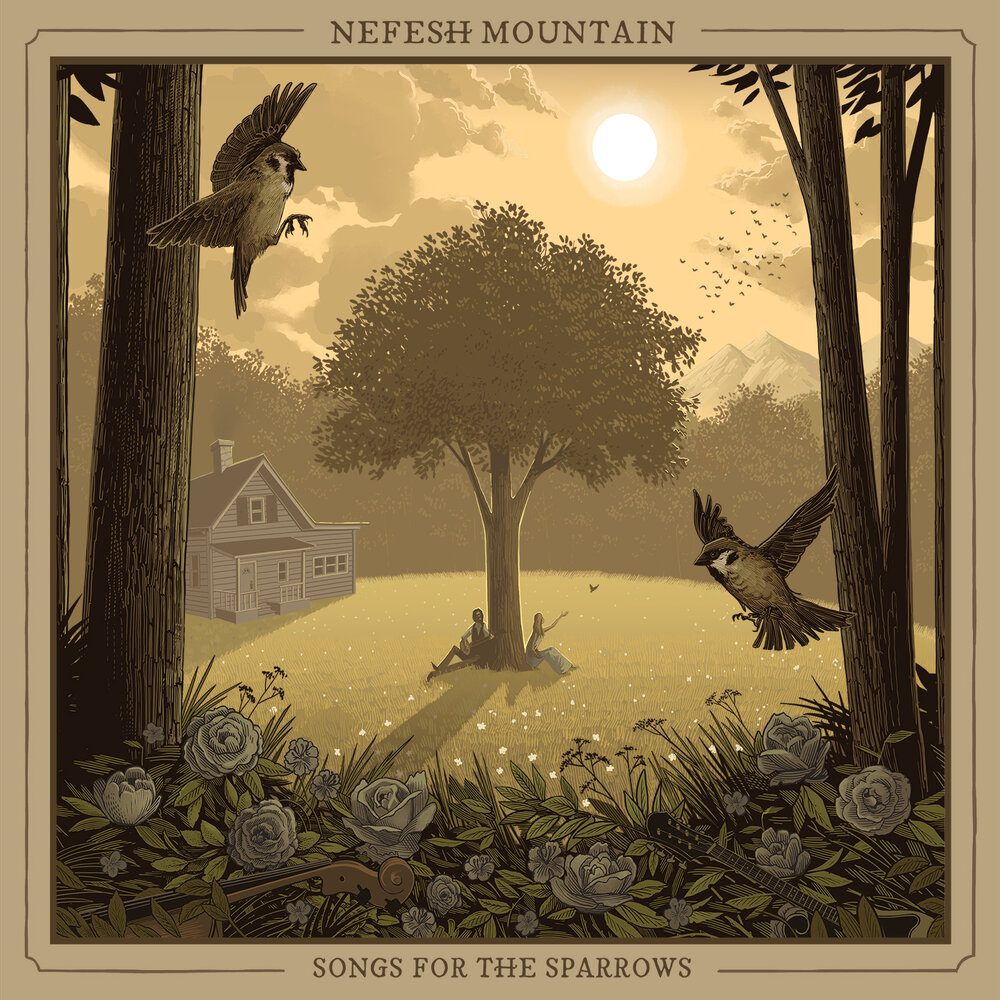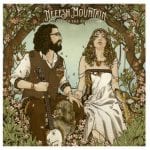Nefesh Mountain Brings Jewish Joy to the Forefront on ‘Songs for the Sparrows’

“In 1947,” writes Michael Chabon in his 2016 family memoir Moonglow, “there was, to my grandfather, one reason to call oneself a Jew, to go on being Jewish before the world: as a way of telling Hitler, ‘F**k you.’”
Doni Zasloff and Eric Lindberg, husband and wife and principal members of the Montclair, New Jersey, bluegrass outfit Nefesh Mountain, speak with more decorum and less blunt-force contempt than Chabon’s granddad on their new record, Songs for the Sparrows, but their energy remains nonetheless similar. This is an album that, under the hood and above, brims over with celebratory pride: It’s the music one sings to announce themselves, and simply to embrace the bountiful place to which their life’s journey has taken them.
The most immediate point for couching this sense of awe next to the record’s spotlight on Jewish identity is “Piece of the Sun (For Anne Frank),” a passing down of history from mother to daughter: “Way back in 1943 / She lived inside her diary / In days beneath our darkest skies / With a burning ember deep inside.” Frank remains, 76 years after her death in Bergen-Belsen, both a symbol of what the Holocaust took from the Jewish people and an icon of the Jewish survivors’ spirit. An ode to her memory, and to Jewish young women alive today, makes natural sense for the album’s purposes.
But the song best embodying that strength of perseverance is Ola Belle Reed’s “I’ve Endured,” performed here unaltered by Zasloff, Lindberg, and their cohorts: Alan Grubner on fiddle, David Goldenberg on mandolin, and Max Johnson on bass. The song remains as Reed wrote it. Nothing is changed other than the voices singing Reed’s lyrics and the hands playing her music, and yet these details alone change everything about the song. To hear Jewish musicians regale their listeners with Reed’s experiences in the Great Depression is to hear those experiences reframed through the historical lenses of Jewish oppression and persecution, and in the language of genocide. The shift in author facilitates a fundamental shift in meaning.
Suffering in Judaism is as much a cultural birthright as it is a mundane fact of life. (Tell your spouse’s mother you’re full after just one plate on Rosh Hashanah, and you might as well stab her in the heart.) But Songs for the Sparrows isn’t structured around suffering as its aesthetic basis. It’s about Jewish joy. Listening to Lindberg’s virtuosic banjo, Goldberg’s lively mandolin, Johnson’s thumping, jovial bass, Grubner’s exuberant fiddle, and Zasloff’s soaring vocals lifts spirits. As do guest turns on a couple tracks from Sam Bush, Jerry Douglas, and Bryan Sutton. With this record, Nefesh Mountain invites us to consider Jewish past not in grief but in gratitude: We’re alive, so it’s incumbent on us to sing life’s praises, which frankly applies to the present, too. It wasn’t long ago that a mob of torch-bearing and polo-bedecked white supremacists stomped through Charlottesville shrieking antisemitic dog whistles. So it goes. Songs for the Sparrows necessarily counterbalances the recent rise in such hatred with heart.




